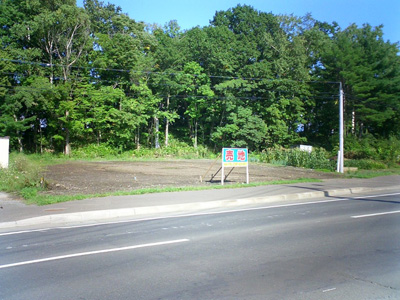After an energetic rise over the past few years, Japan’s real estate market is running out of steam. Particularly in the past few months, difficulty in completing transactions has fuelled expectations that prices will start heading south. In the capital markets, the value of Japanese real estate investment trusts (J-Reits) has plummeted in recent months, leaving many trading well below their net asset value. The negative sentiment surrounding Japan’s property sector may seem natural, given the grim outlook facing the world’s main economies. The slowdown in the US, coupled with a rapid appreciation of the yen, is hurting the country’s exporters, which have been important drivers of growth.
News about the fall-out from the subprime mortgage problem and ensuing credit squeeze, has made headlines daily, even in Japan, leading to greater caution in real estate investment and lending.
“Some of the ripples [of the credit crunch] are starting to show up on the shores of Japan,” says Jack Chandler, Asia Pacific chief executive officer of La Salle Investment Managers, which manages $50bn of global assets.
For one thing, the “hot money”, of hedge funds and others, that drove real estate prices in the region to high levels has beat a fast retreat, as the funds have faced problems at home, he says.
The sharp downturn in the J-Reit market can be attributed largely to this phenomenon of sharp capital outflows from a market that is young, at only eight years, and underdeveloped. The J-Reit index has fallen 42 per cent in less than a year from Y6,752 ($69.5) on May 31 last year to Y3,914 on March 7, 2008.
“We see a big gap in net asset value versus pricing,” says Yasuo Nakashima, La Salle Investment Management’s Japan chief executive. “It’s not because of real estate fundamentals, it’s capital market driven.”
At the same time, there has been a change of attitude among lenders, which has a big impact on the underlying real estate market.
“Over the past two months, the lending market changed dramatically, especially for highly geared and medium-sized lenders,” says Mr Nakajima.
For one thing, foreign banks have cut back substantially on real estate lending in Japan, due to orders from their headquarters to reduce loan exposure across the board, industry officials say.
In particular, securitised lenders – mostly foreign institutions that packaged real estate loans into asset-backed securities and sold them to investors – are “out of business”, says Mr Nakajima.
Japanese banks have also been withdrawing liquidity, many industry officials say. This is partly seen as a result of banks becoming more conservative in the wake of the subprime problems in the US. The implementation of the Financial Instruments and Exchange Law last October, whose primary aim is to strengthen investor protection, has also led to a tightening of lending standards, says Daisuke Fukushima, analyst at Nomura Securities in Tokyo. As a result, some of the smaller and medium-sized real estate developers are facing severe strains, analysts say.
The situation is expected to get worse before it gets better. Mr Fukushima believes banks could tighten their lending stance further after the start of the new financial year in April. If that happens, particularly small and medium-sized developers under pressure to repay their loans are likely to start unloading inventory at discounted prices, while some are even likely to go under. Growing expectations that this situation will lead to a fall in prices have halted transactions, as market operators take a wait-and-see stance, says Mr Fukushima.
But for the more financially robust companies, this downturn could provide an attractive buying opportunity. So far, despite the trouble in the transaction market, the real estate leasing market is firm. Top-quality office space remains tight, particularly in Tokyo where vacancy rates have been falling steadily. Average vacancy rates in the main business centres were down to 2.55 per cent at the end of January, compared with 5.57 per cent in December 2003, according to Miki Shoji, an independent office space broker. Robust demand for prime office space is fuelling big developments in Tokyo, including a 43-storey building facing Tokyo Station, the capital’s railway hub, that has leased nearly all its space despite a completion target of 2013. Mitsubishi Estate, which owns prime real estate in Tokyo’s Marunouchi business district, has been redeveloping big sections there at a cost of Y950bn between 1998 and 2017 in a programme that will see seven to eight more buildings go up in the next nine years.
But while other large-scale developments are planned, the amount of new office space will be significantly lower than in the past two years, raising expectations that rents could go up. As such, the flight of hot money and consequent slowdown in the market provide opportunities for traditional real estate investors.
Looking ahead, there are expectations of new money flowing into the market, particularly from sovereign wealth funds and pension funds. In any big developed economy, apart from Japan, most high-quality real estate is owned by pension funds. Over time, says Mr Chandler, Japanese pension funds will conclude they should follow suit.

I am not sure that I can completely understand your comments. Would you be so kind as to expand on your reasoning a little more before I comment.
Hello and well met! Thanks for the great post (about y downturn in Japan | Real Estate Blog) I think that Estate investment real in regards to this topic is also important.